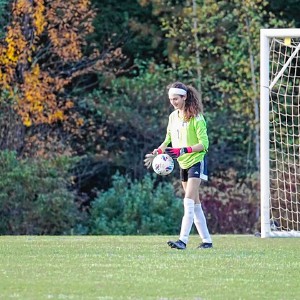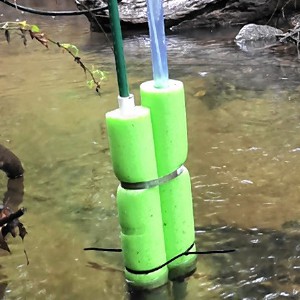This Arctic blast may not be a record but it can still kill you quickly
| Published: 02-01-2023 2:04 PM |
The Arctic blast coming through the region on Friday and Saturday may not produce record cold but temperatures will fall far below zero and, combined with high winds, will be very dangerous.
In what is becoming a more common winter occurrence, air masses that normally stay over the Arctic Circle have moved south because of changes in upper-level winds, including the jet stream over North America that often acts as a barrier. Record cold has swept the Upper Midwest this week with air temperatures as low as 62 degrees-below-zero being recorded, and record cold is being felt as far south as Texas.
Locally the air temperature, not including wind chill, is projected to hit minus-14 at Concord Municipal Airport from Friday night into Saturday morning, and not to rise higher than 8 degrees above zero all day Saturday.
While brutally cold, the weekend’s overnight low won’t be a record for Concord, which has seen temperatures as low as minus-35 during 152 years of official record keeping. Temperatures have fallen below minus-20 many times, including minus-24 recorded on Jan. 16, 2009, and there have been a few times in which the temperature never rose above zero all day.
One good point for this cold blast is that it will be short-lived, as shifting air masses push out the Arctic cold late Saturday. By early Sunday, Concord’s temperature is expected to be back above freezing.
Those shifting air masses will produce high winds, however, making the low temperatures much more dangerous. Wind chill in Concord from Friday into Saturday could be the equivalent of temperatures of 40 degrees-below-zero or even colder.
In the mountains, conditions will be brutal. The Mount Washington Observatory estimates that overnight Friday into Saturday the air temperature will fall to about 40 degrees-below-zero and wind speeds will range from 90 to 125 mph, producing an effective wind chill as low as 101 degrees-below-zero.
“This means frostbite could start to develop on exposed skin in as little as five minutes or, at the extreme end, less than one minute,” staff meteorologist Ryan Knapp wrote on his Higher Summits Forecast.
Article continues after...
Yesterday's Most Read Articles
 Mother of two convicted of negligent homicide in fatal Loudon crash released on parole
Mother of two convicted of negligent homicide in fatal Loudon crash released on parole
 Students’ first glimpse of new Allenstown school draws awe
Students’ first glimpse of new Allenstown school draws awe
 Pay-by-bag works for most communities, but not Hopkinton
Pay-by-bag works for most communities, but not Hopkinton
 ‘Bridging the gap’: Phenix Hall pitch to soften downtown height rules moves forward
‘Bridging the gap’: Phenix Hall pitch to soften downtown height rules moves forward
 Regal Theater in Concord is closing Thursday
Regal Theater in Concord is closing Thursday
 ‘We’re just kids’: As lawmakers debate transgender athlete ban, some youth fear a future on the sidelines
‘We’re just kids’: As lawmakers debate transgender athlete ban, some youth fear a future on the sidelines
The online discussion site reddit, in a section devoted to the White Mountains National Forest that is frequented by experienced hikers who regularly go above treeline in winter, had this succinct advice: “Do not go hiking Friday and Saturday. You will die.”
Extreme cold can be fatal in a relatively short period of time. A drop of just three degrees in the body’s core temperature can cause organs and systems to start shutting down in an effort to preserve the brain, a process called hypothermia that can be difficult to get under control.
Wind chill, which is calculated by combining the air temperature and the speed of the wind, is an estimate of how quickly bodies feel the cold as moving air carries away our own heat.
A similar burst of extreme cold happened in December and in January 2022. This may reflect ongoing changes in upper level wind patterns as the climate warms, producing more erratic weather patterns with more extremes of temperature and precipitation.
This Arctic blast comes in what has otherwise been a very warm winter, with relatively little snowfall and temperatures so high that ice-in has yet to be called on Lake Winnipesaukee.


 With less than three months left, Concord Casino hasn’t found a buyer
With less than three months left, Concord Casino hasn’t found a buyer Kearsarge Middle School drone team headed to West Virginia competition
Kearsarge Middle School drone team headed to West Virginia competition Phenix Hall, Christ the King food pantry, rail trail on Concord planning board’s agenda
Phenix Hall, Christ the King food pantry, rail trail on Concord planning board’s agenda Granite Geek: Forest streams are so pretty; too bad they’re such a pain to measure
Granite Geek: Forest streams are so pretty; too bad they’re such a pain to measure
